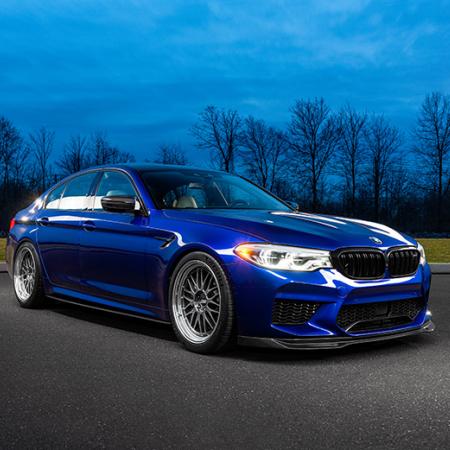WHILE a leading intellectual property expert has welcomed last week’s ruling by the South African Supreme Court of Appeal against the bid by German motor manufacturer BMW to maintain a monopoly on the production of spare parts for its vehicles, fears have been expressed that the judgment would work against vehicle manufacturers.
The National Association of Automotive Component and Allied Manufacturers (Naacam) told Business Day on Monday it did not foresee the judgment having much benefit for local components manufacturers in the short term, although it could result in increased imports of spare parts in the longer term.
The ruling would be a "big blow" for vehicle manufacturers, according to Naacam executive director Robert Houdet. He said vehicle manufacturers made a lot of money from the sale of spare parts which they used to amortise the substantial investment in research and development. If they could not recoup these costs from the sale of spare parts, they might have to find it elsewhere, possibly by raising the prices of the vehicles.
The Supreme Court of Appeal denied BMW’s attempt to interdict importer and distributor of replacement car parts Grandmark International, from selling imported spare parts for the E46 BMW — specifically the bonnet, grille, headlight assembly, and front fender — on the grounds that BMW had registered an aesthetic design over them.
Appeal court Judge Robert Nugent noted that the Designs Act distinguished between "aesthetic designs" and "functional designs" and specifically excluded spare parts from the protection of a registered functional design.
He dismissed BMW’s claim that its components were aesthetic designs as defined in the law. They were purely functional in nature and should not have been registered as aesthetic designs.
Professor Owen Dean of the University of Stellenbosch said the judgment set precedents by clarifying what constituted "aesthetic designs" and by ruling that a spare part for a motor vehicle that did have an aesthetic design did not itself qualify for an aesthetic design — as BMW claimed it did.
"I can’t disagree with this. It makes sense. What has happened in recent years is that BMW have been very aggressive in their use of intellectual property to try to stamp out all sorts of competition and have had their nose bloodied on a couple of occasions.
"This is about the third judgment that has gone against them in their efforts to what some people might say is to misuse intellectual property law to establish a dominant position in the marketplace.
"Personally I think it is quite a welcome decision. Government policy is that competition in the spare parts market is something to be encouraged and so the judg ment also does not run counter to the mainstream of thought in the field.
"One does not want to foster pirate parts, that is a different story. There is a general tendency to welcome fair competition and to produce parts that fit BMW motor cars is not contrary to public policy. In the overall scheme of things I don’t think it is a bad judgment."
BMW spokesman Edward Makwana said the company was evaluating the judgment and would then decide on what further steps should be taken.
Grandmark’s chief operating officer Steven Ongchin said he hoped that the decision would lead to greater competition in the spare parts market and lower prices by loosening the monopolistic stranglehold that original equipment manufacturers had on the local replacement parts market.
Mr Houdet said the judgment would not result in local component manufacturers branching out to manufacture copied spare parts under their own auspices, as their production was under licence to the original equipment manufacturers and they often used the tools owned and supplied by the m.
Even parts not essential to the mechanical functionality of engines such as the bonnet were produced to high safety specifications.
"The danger is imports flooding SA with no protection to the original equipment manufacturers," Mr Houdet said.––Paul Duchene









